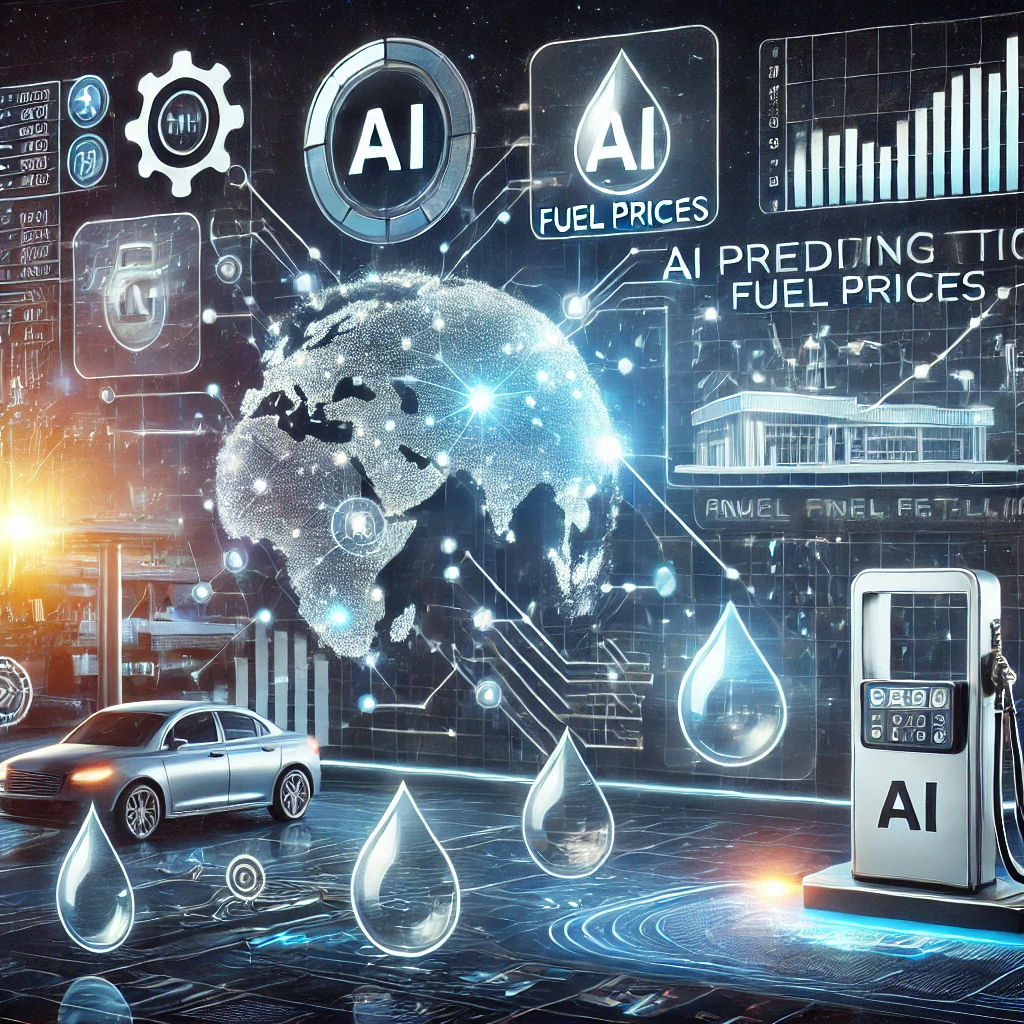Predicting Fuel Prices with AI Magic!
How AI Predicts Fuel Prices
Data Collection and Integration: AI systems collect real-time data from diverse sources, including:
- Historical fuel price trends.
- Crude oil production and inventory reports.
- Currency exchange rates.
- Geopolitical events, such as conflicts or trade embargoes.
- Macroeconomic indicators like inflation and interest rates.
Machine Learning Models: AI employs machine learning techniques like:
- Regression Analysis: To estimate fuel price movements based on specific factors.
- Time-Series Analysis: To predict future prices based on historical trends.
- Neural Networks: For identifying hidden patterns and non-linear relationships in complex datasets.
Real-Time Predictions: AI systems use continuously updated data to provide real-time price forecasts, ensuring predictions remain accurate as market conditions evolve.
Benefits of Using AI for Fuel Price Predictions
- Enhanced Accuracy: AI minimizes errors caused by human bias or oversights, delivering precise predictions.
- Proactive Decision-Making: Businesses in transportation, logistics, and energy can optimize operations and reduce costs by acting on AI-driven insights.
- Price Stability: Policymakers can use predictions to prepare for potential fuel price spikes and mitigate their impact.
- Consumer Empowerment: Accurate forecasts enable consumers to plan fuel expenses and make informed purchasing decisions.
Applications of AI in Fuel Pricing
- Logistics and Supply Chain Management: Companies optimize routes and fuel purchases based on predicted costs.
- Energy Sector: Refineries and distributors adjust operations and pricing strategies in anticipation of market changes.
- Government and Policymaking: AI aids in crafting fuel tax policies and managing subsidies efficiently.
Challenges and Future Scope
While AI has revolutionized fuel price prediction, challenges like data quality, unexpected geopolitical disruptions, and climate-related events can still impact accuracy. In the future, integrating AI with blockchain for transparent data sharing and leveraging IoT for real-time monitoring may further refine predictions.
By harnessing the "magic" of AI, industries and individuals alike can navigate the complexities of fluctuating fuel prices, creating a more stable and efficient energy economy.
#AI #FuelPrices #MachineLearning #networkscience #graph analystics #network conference #ArtificialIntelligence #EnergyForecasting #DataScience #PredictiveAnalytics #SmartEconomy #PriceTrends #EnergyMarkets #TechInnovation #FutureEnergy #AIinEnergy #FuelEconomy #BigData #sciencefather #researchw
Visit Our Website : https://networkscience.researchw.com/
Contact us : network@researchw.com
Get Connected Here:
*****************
Tumblr: https://www.tumblr.com/emileyvaruni
Pinterest: https://in.pinterest.com/emileyvaruni/
Blogger: https://emileyvaruni.blogspot.com/
Twitter: https://x.com/emileyvaruni
YouTube: https://www.youtube.com/@emileyvaruni
- Get link
- X
- Other Apps
- Get link
- X
- Other Apps

Comments
Post a Comment